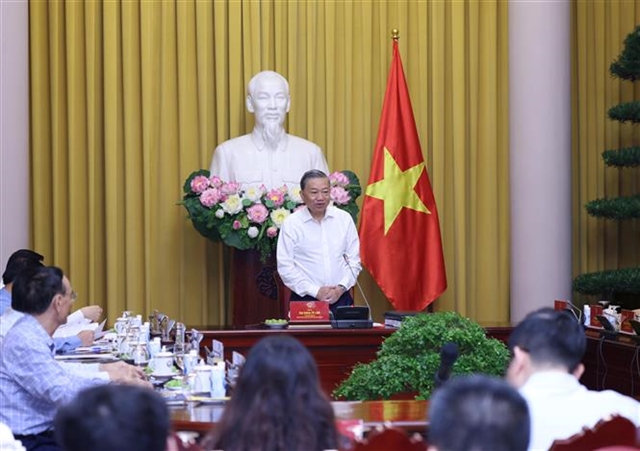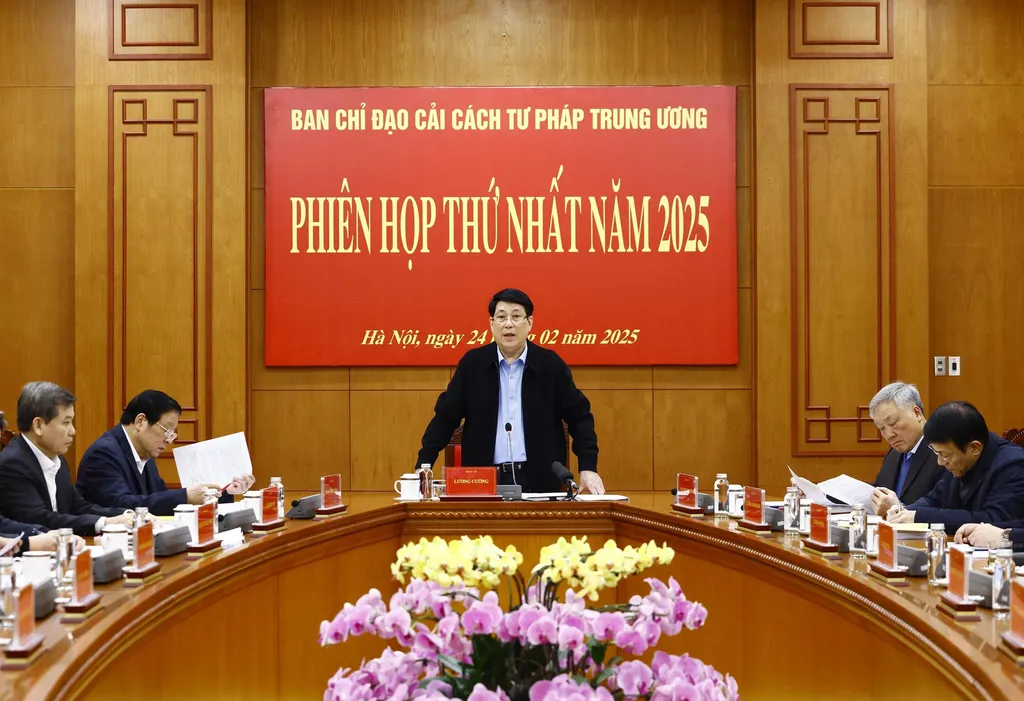 Politics & Law
Politics & Law

 |
| State President Lương Cường presided over the meeting of Central Steering Committee for Judicial Reform in Hà Nội on Monday. — VNA/VNS Photo |
HÀ NỘI – State President Lương Cường on February 24 chaired a meeting of the Central Steering Committee for Judicial Reform, which focused on reviewing the progress of judicial reforms, outlining priorities for this year, and discussing the 2025 work programme and internal operational regulations.
At the meeting, the first held in 2025, participants also gave opinions on legal frameworks related to the death penalty and its enforcement.
The committee also announced the latest changes to its structure, alongside new guidelines from the Politburo on the committee’s functions, responsibilities, power and work relations. The committee now consists of 15 members, with President Cường serving as its head.
A report delivered at the meeting highlighted the committee’s achievements despite significant challenges, with the effective implementation the Party’s judicial reform policies and orientations set out by the Party in the 13th National Party Congress's Resolution and subsequent guidelines, including Resolution No. 27-NQ/TW on continuing to build and complete the socialist rule-of-law State in the new era.
Particularly, the committee considered three laws and 11 resolutions concerning judicial organisation and operations before the National Assembly’s approval. Central judicial bodies have intensified efforts to monitor, inspect, and improve internal controls, the reported added.
Addressing the meeting, President Cường affirmed that over the years, especially in 2024, the committee has led the successful implementation of key judicial reforms aligned with the Party's policies. These efforts have enhanced human rights and citizen rights protection, reinforced national security, and supported socio-economic development.
However, the State leader also acknowledged several outstanding challenges and stressed the need for targeted solutions moving forward. He praised the Party Central Committee’s Commission for Internal Affairs and the Supreme People's Procuracy for their proactive work in preparing materials for the meeting and reaffirmed the importance of continued collaboration between agencies to ensure effective implementation of judicial reforms.
Noting that 2025 will see important national events, including the 80th founding anniversary of the nation and the 50th anniversary of national reunification, President Cuong underscored the importance of aligning judicial policies with humanitarian goals, such as amnesty and pardons. He pointed to the need for necessary amendments to legal frameworks, particularly relating to death penalty, and instructed agencies to prepare for discussions on these issues.
Showing his support to the work plan of the committee for 2025, the President stressed the importance of continued collaboration among relevant bodies to give proposals on a number of projects and issues related to the completion of the structure of judicial agencies.
President Cường agreed with proposed solutions to improve the legal framework and enhance the efficiency of the application of laws related to the death penalty. He also urged the Supreme People's Procuracy to incorporate the feedback from the committee and relevant agencies, focusing on promptly refining the proposals to address bottlenecks and resolve issues that no longer align with current realities.
The Supreme People's Procuracy was requested to coordinate with relevant agencies to prepare the necessary materials for submission to the Politburo for review in the first quarter of 2025. This is to ensure the quality and progress of the proposals, which will be presented to the National Assembly for amendments and supplements to relevant laws later this year. VNS